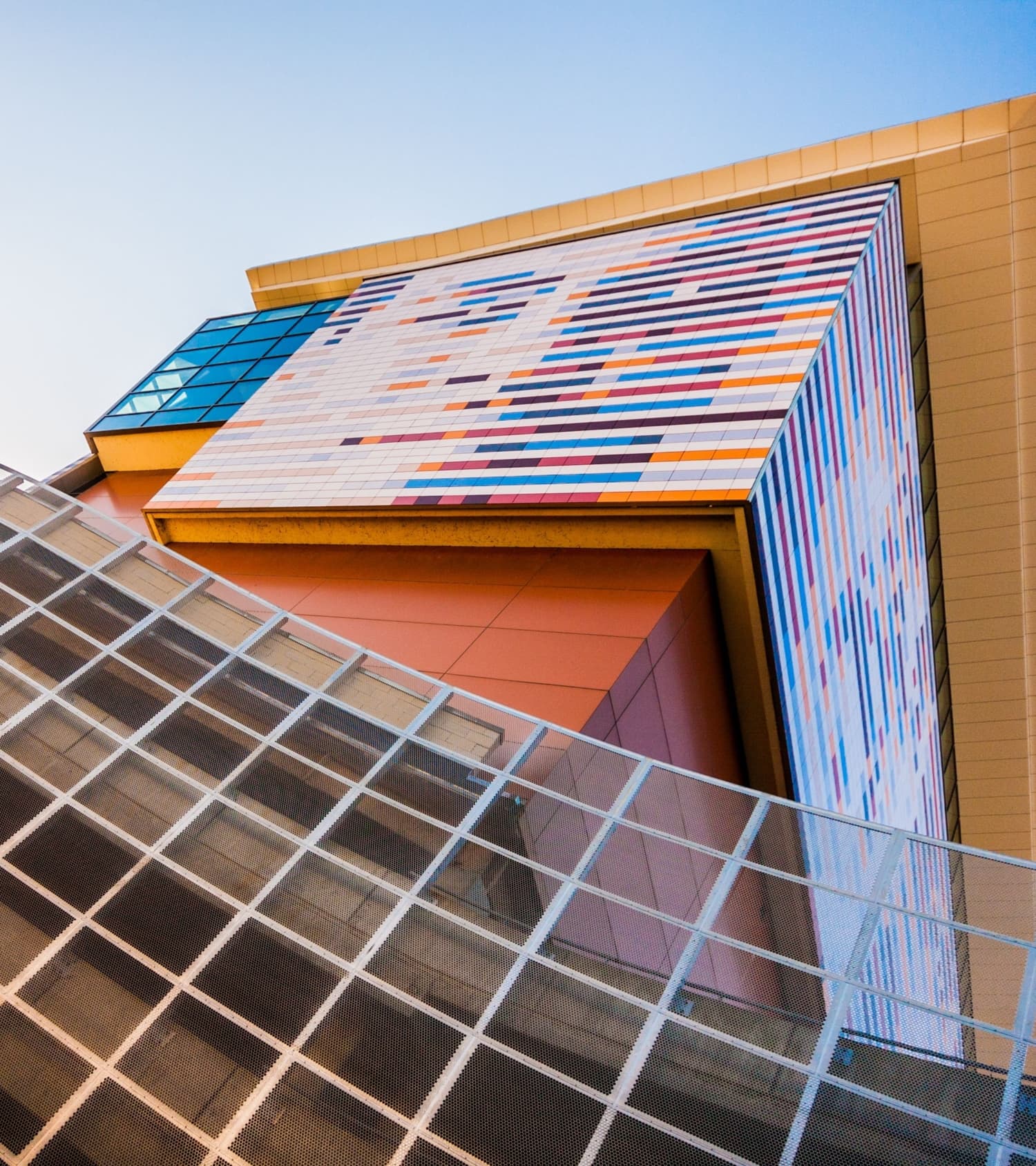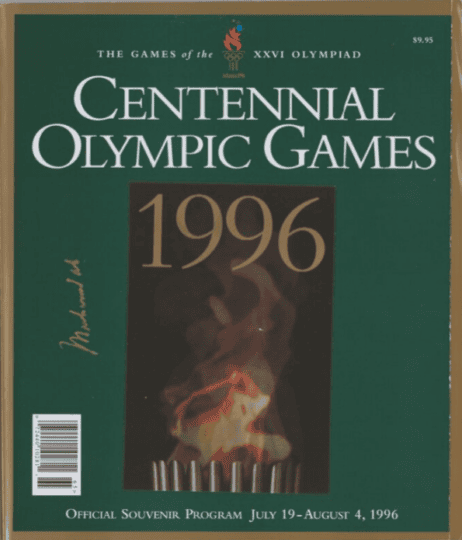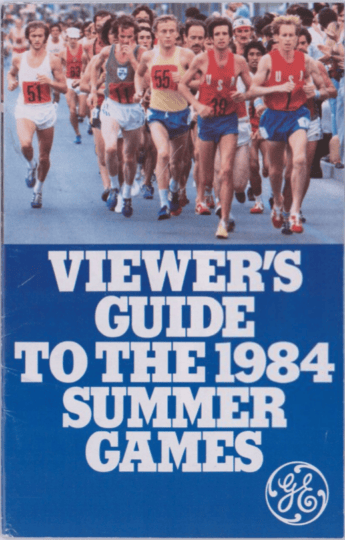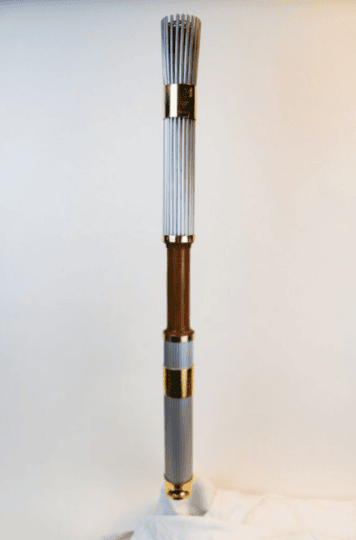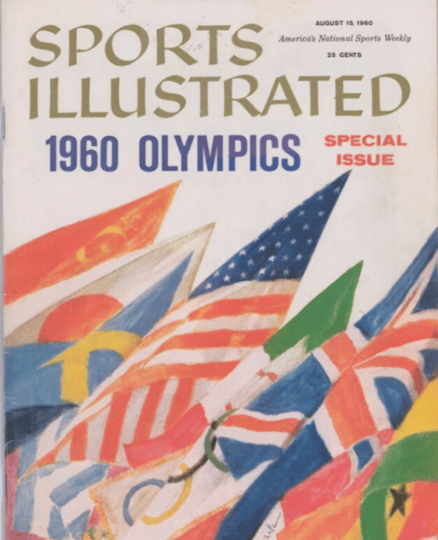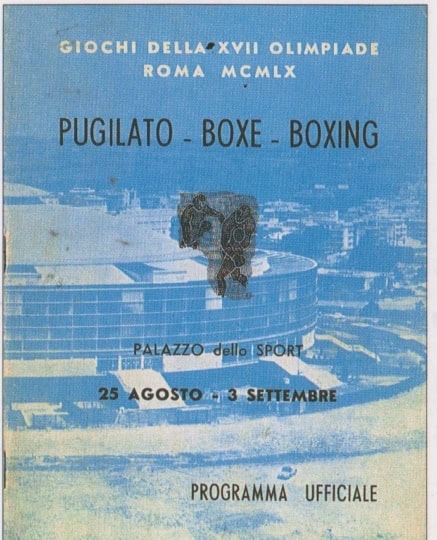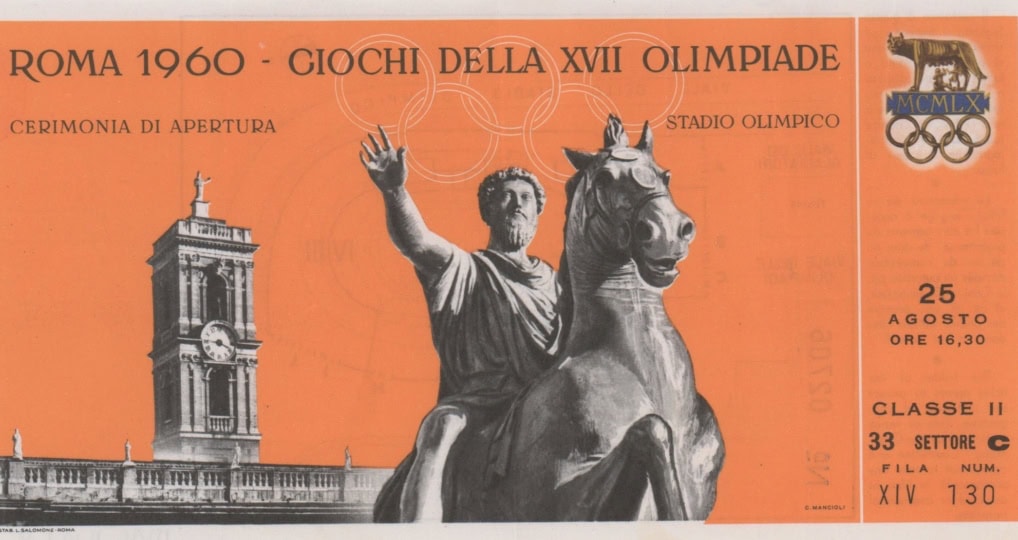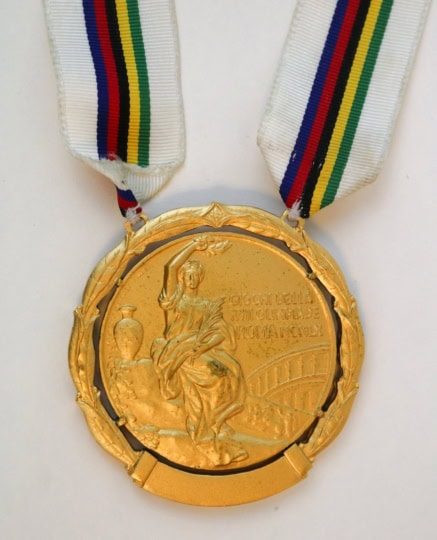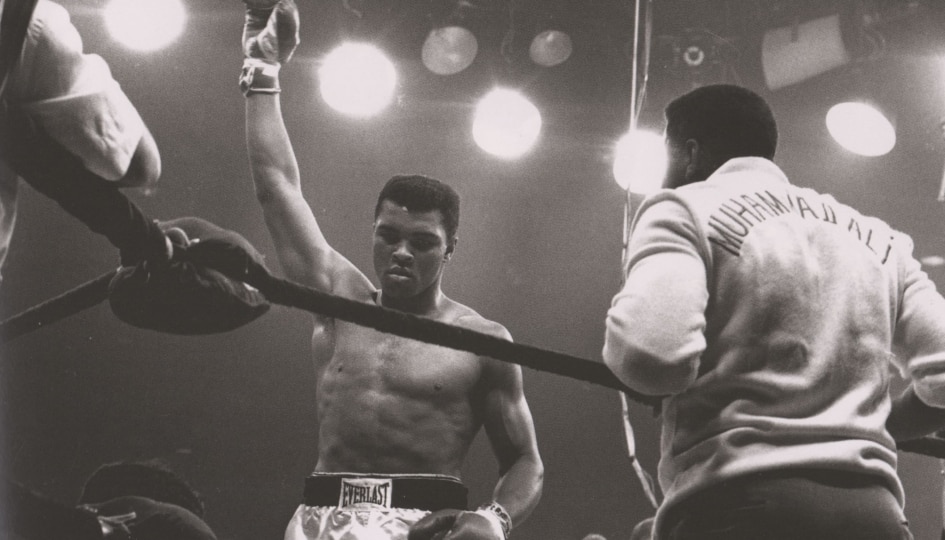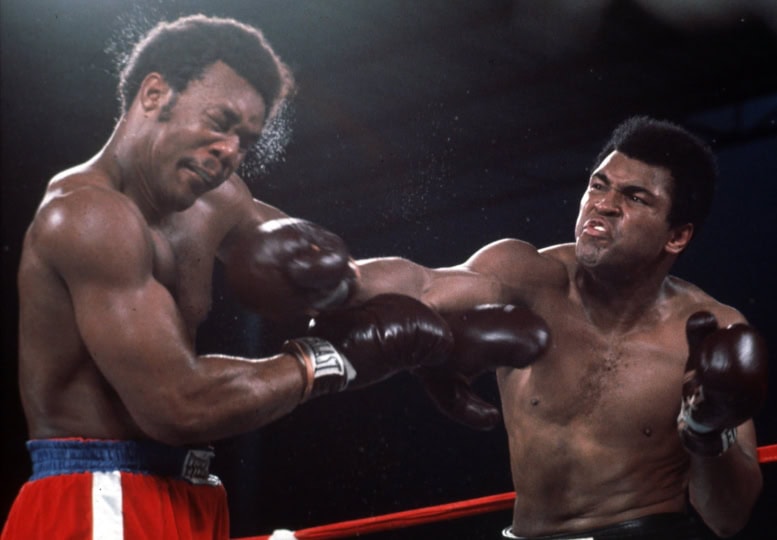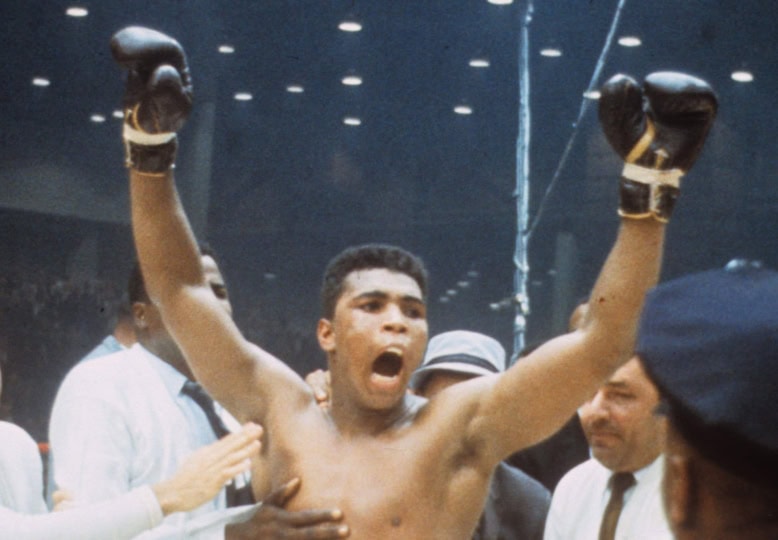Ali's Olympic Journey
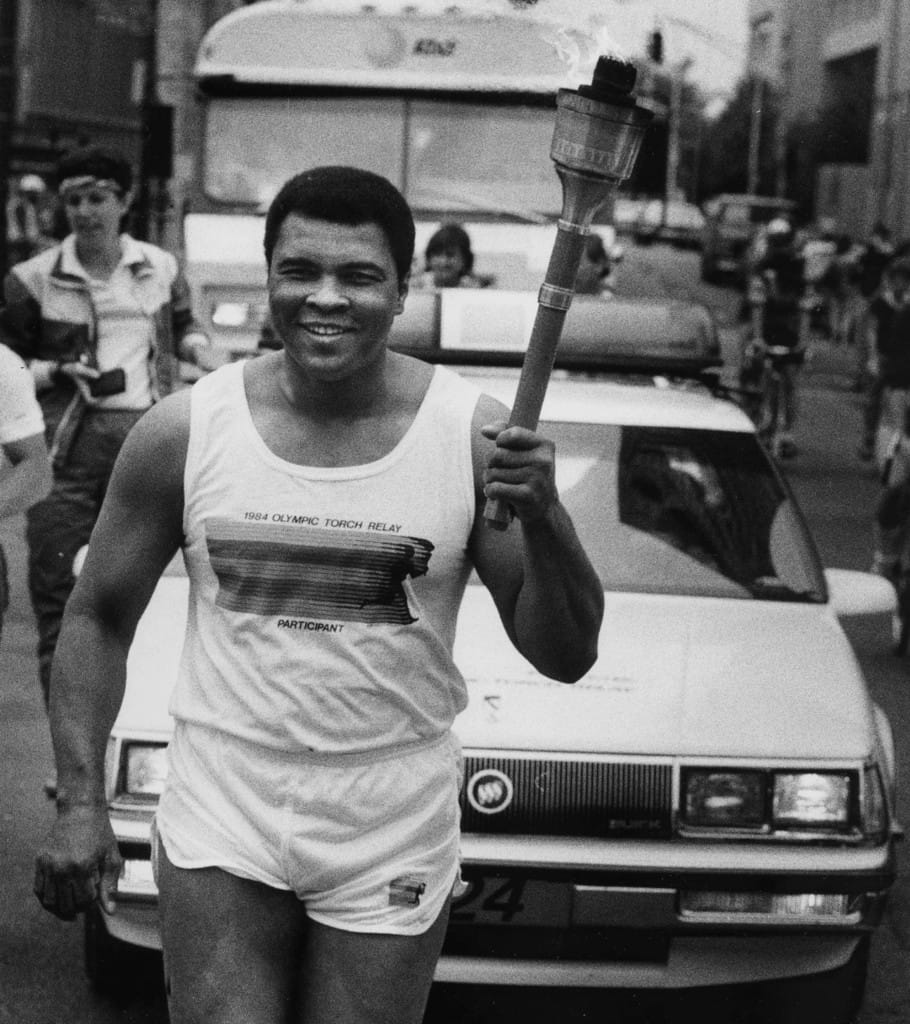
Muhammad Ali:
An Olympic Life
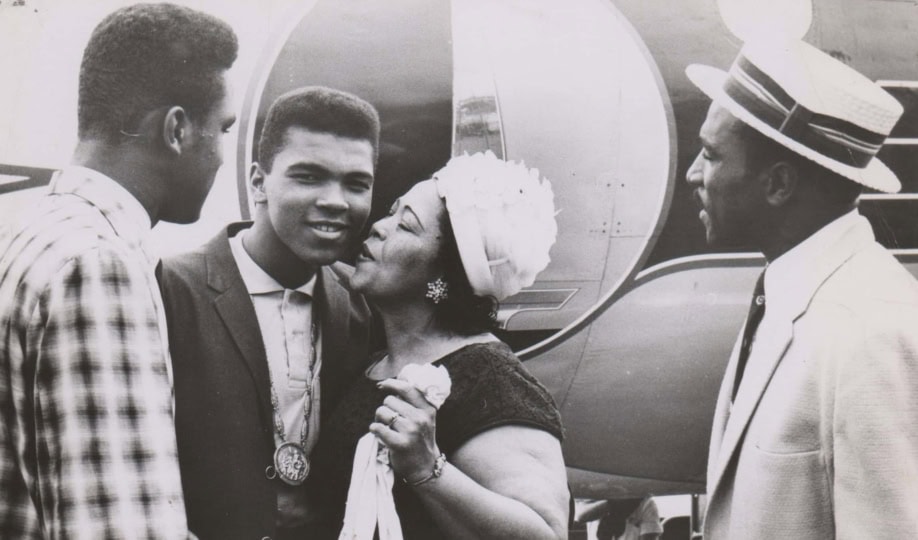
A Life of Olympic Service
Since their revival in 1896, the Olympic Games have stood as a symbol of unity and athletic distinction. They embody the values of excellence, respect, and friendship – values deeply aligned with Ali’s own Six Core Principles: Spirituality, Respect, Giving, Confidence, Conviction, and Dedication. This intrinsic connection underscores why it is difficult to tell the story of the modern Olympic Games without also telling the story of Muhammad Ali.
Ali’s Olympic journey began in 1960 when he won the gold medal in Rome as a light heavyweight boxer, an achievement that catapulted him to international fame. Thirty-six years later, in one of the most memorable moments in Olympic history, Ali lit the Olympic cauldron at the 1996 Atlanta Games, symbolizing hope and perseverance despite his battle with Parkinson’s disease.
Throughout the intervening years and beyond, Ali’s presence at the Summer Olympic Games and the Special Olympic Games highlighted his enduring influence. He consistently bridged the gap between sports, celebrity, and broader societal issues, using his platform to advocate for social justice, peace, and humanitarian causes. Ali personified the Olympic spirit and inspired countless individuals worldwide, making his story inseparable from the narrative of the modern Olympic Games.
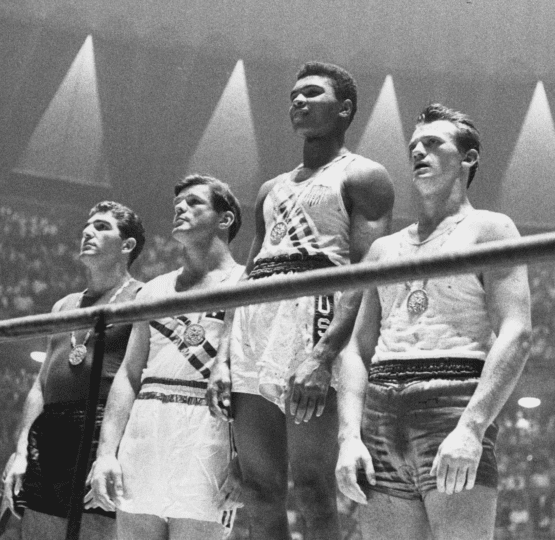
1960 Summer Olympics: Rome, Italy
In 1960, Muhammad Ali, then Cassius Clay, stepped onto a global platform for the first time, a move that would catapult his professional career.
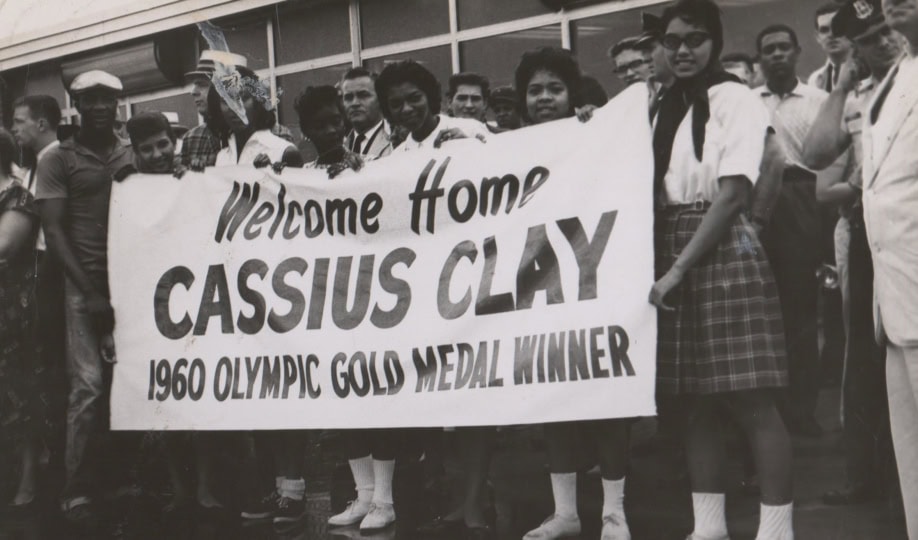
Going for the Gold
According to Joe Martin, Ali’s first trainer, “We had a rough flight going to California for the trials, and so when it came time to go to Rome, he said he wasn’t gonna fly, and that he wouldn’t go…He wanted to take a boat or something.” The story goes that Ali went to an army surplus store and bought a parachute, which he wore for the entire flight to the games.
Upon arriving in Rome, Ali made immediate and lasting impressions, reportedly introducing himself as the King of the Olympic Village. He quickly became known as “one of the best-known, best-liked athletes in the Olympic Village.” He won his three initial matches as a light heavyweight contender by unanimous decision and a second-round knockout before facing Polish boxer Zbigniew Pietrzykowski in the division finals.
Ultimately, Ali came home from the Olympics as a Gold Medalist and a nationally recognized household name. His first experience at the Games primed him to begin his career as a professional boxer and start his journey to becoming The Greatest.
Watch Fight Highlights
Muhammad Ali defeated three-time European champion Zbigniew Pietrzykowski to earn the gold medal for the USA.
Watch Fight Highlights
Muhammad Ali defeated three-time European champion Zbigniew Pietrzykowski to earn the gold medal for the USA.
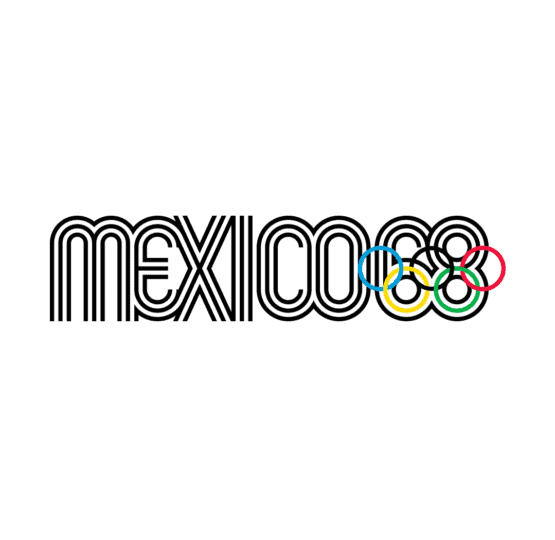
1968 Summer Olympics: Mexico City
While Muhammad Ali was absent, his impact was felt in this year's Summer Games.
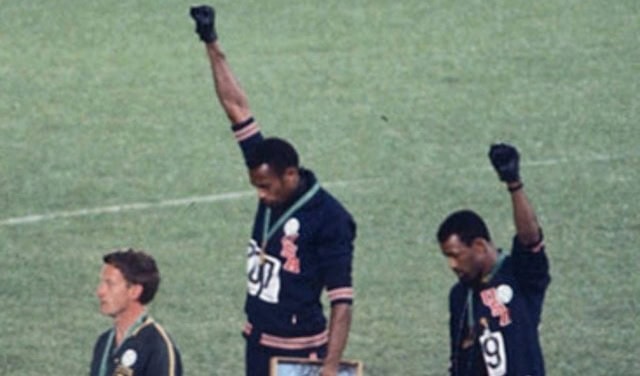
Olympic Project for Human Rights
Muhammad Ali did not make an appearance at the 1968 Olympic Games. His passport was taken from him as part of punishment for his conscientious objection, refusing induction to go into the military during the Vietnam War. He was also stripped of his title from the World Boxing Association and was banned from boxing for four years.
However, his absence made an impact on the 1968 Games.
Two Olympic athletes, Tommie Smith and John Carlos, were members of the Olympic Project of Human Rights. During a medal ceremony following Smith’s record-setting gold medal win and Carlos’ bronze medal win in the 200-meter race, both athletes raised a black-gloved fist during the Star-Spangled Banner.
The Olympic Project for Human Rights called for Black protest of the Olympics with four demands:
- Restore Muhammad Ali’s heavyweight title
- Remove Avery Brundage as head of the International Olympic Committee (IOC)
- Hire more Black coaches
- Disinvite South Africa and Rhodesia (now Zimbabwe) from the Olympics as they were still under apartheid regime
“Muhammad Ali was a great athlete… He combined his athletic talent with social action during the 1960s, when both he and the black social revolution reached their peak… And I really believe that, if Ali hadn’t done what he did, Harry Edwards wouldn’t have gotten a fraction of the support he got in 1968 to boycott the Mexico City Olympics. Tommie Smith and John Carlos wouldn’t have raised their fists. Ali had to be on their minds.” – Arthur Ashe, from Muhammad Ali: His Life and Times by Thomas Hauser.
Watch Interview
Rashaad Abdur-Rahman, founder and CEO of the Racial Healing Project, discusses Ali's connection to the Olympic protest.
Watch Interview
Rashaad Abdur-Rahman, founder and CEO of the Racial Healing Project, discusses Ali's connection to the Olympic protest.
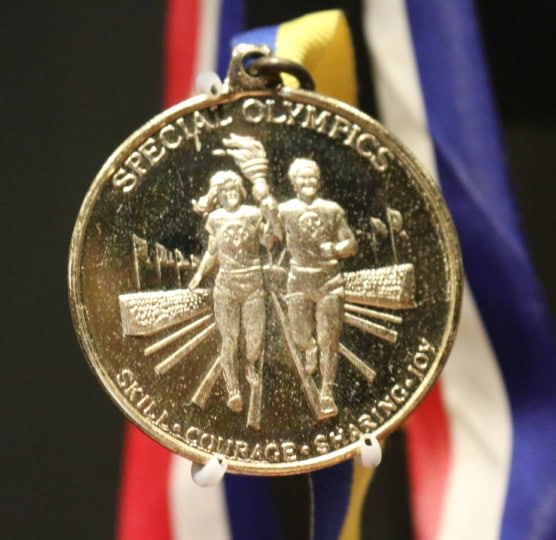
1979 Special Olympics: Brockport, NY
The Special Olympics embodied Ali's belief in sport as a great unifier.
Sport and Equality
While Muhammad Ali devoted much of his life to humanitarian causes, he especially leaned into this passion as he got older. One of his favorite events to support was the Special Olympics as it embodied his belief in the unifying capabilities of sport and that all people should be treated fairly. His continued support for the Special Olympics began in 1979 when the Games were held in Brockport, New York. Ali, along with numerous other celebrities, attended to not only bring attention to this wonderful joining of sport and equality, but to also show his support for each individual athlete.
Apart from watching the games unfold, Ali also made sure to take time for every athlete that wanted to speak with him or have their picture taken with him. One day during the Games, he had a boxing ring set up and staged several rounds of boxing with a group of disabled children. A referee was present, and every time a child won, Ali would throw himself on the mat and pretend he was knocked out. No matter the time, place, or individual, Muhammad Ali had a unique way of creating a lasting memory.
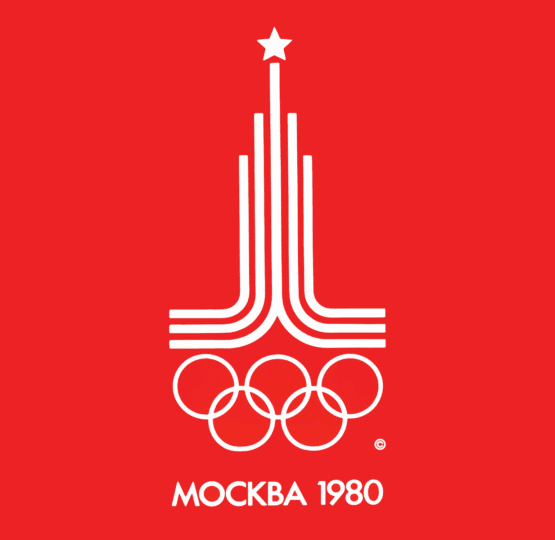
1980 Summer Olympics: Moscow, Russia
With a United States boycott, Muhammad Ali used influence to promote positive change.
International Campaign
While Ali was not physically present at the Summer Olympic Games in Moscow, Russia, he played a role in the social narrative. On December 24, 1979, the Soviet Union invaded Afghanistan. In response, Congress and the United States Olympic Committee voted (separately) not to send a team to compete in the 1980 Games. President Jimmy Carter supported the decision of these entities and, believing that other countries were unaware of the direct support being the Olympic host country would provide, began a campaign to boycott the Games.
To garner international support, President Carter sought help from Ali. “And another of the things I did in that regard was ask the most famous person in our country to represent me and the government of the United States in Africa,” Carter later explained.
Ali agreed to President Carter’s request, arriving in Tanzania on February 2, 1980. Despite challenges, Ali’s efforts exemplify his commitment to using his influence for positive change, further cementing his legacy beyond the boxing ring.
Check out our Digital Exhibit on Muhammad Ali’s first appearance at the Olympic Games below!
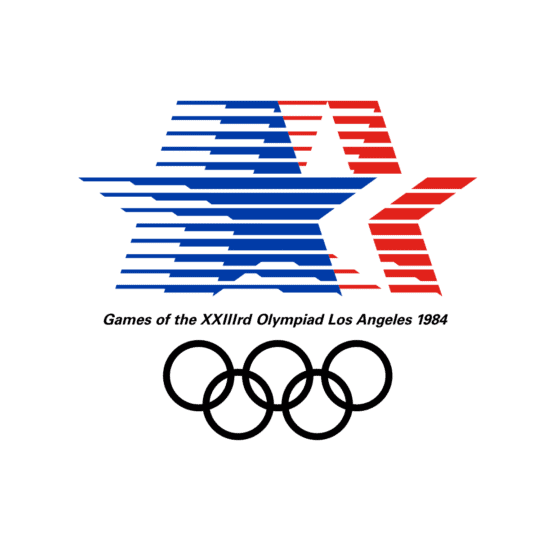
1984 Summer Olympics: Los Angeles, CA
The Champ returns to the Games, this time participating in the famous Torch Relay.
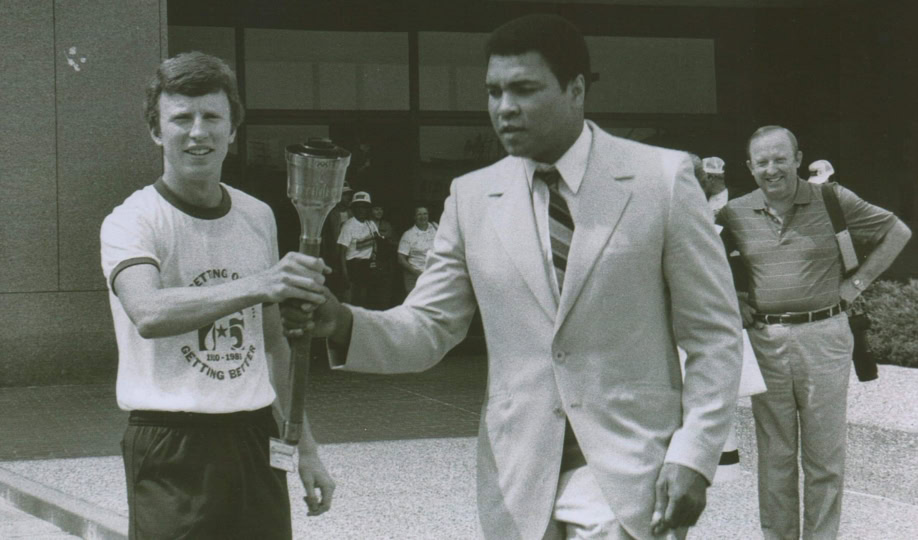
Carrying the Torch
In 1984, four years after he had supported a boycott of the Moscow Games, Muhammad Ali’s name was once again synonymous with the Olympics. The Champ had the unique honor of carrying the Olympic flame through his hometown of Louisville, Kentucky, during the traditional Torch Relay. This modern-day tradition began in 1936 when the flame was carried, on foot, from Olympia, Greece, to the host city of Berlin, Germany. Since this first relay, the Olympics have started with the passing of the flame from Olympia to delegates of the host country, who then decide who carries the flame and where it will stop on its tour before arriving at the games’ venue.
After traveling by plane, the Olympic flame was used to light a cauldron in New York City on May 8, signaling the beginning of its long journey to the host city of Los Angeles, California. On May 27, the flame arrived in Louisville, where Muhammad Ali and ten other runners transported it through downtown. Prior to the relay’s start, Ali told an excited crowd, “If you told me 20 years ago that I’d still be participating in the Olympics, I’d have said that you were crazy.”
During Ali’s one-kilometer stint, he was recorded waving at photographers (who were leaning out of cars) and laughing as he told them, “You’re only smiling because you’re riding!” Fittingly, his run ended at Muhammad Ali Boulevard where fans greeted him with excitement and cameras.
Watch a News Clip
Coverage of Muhammad Ali carrying the torch through Louisville as reported by WLKY News on May 27, 1984.
Watch a News Clip
Coverage of Muhammad Ali carrying the torch through Louisville as reported by WLKY News on May 27, 1984.
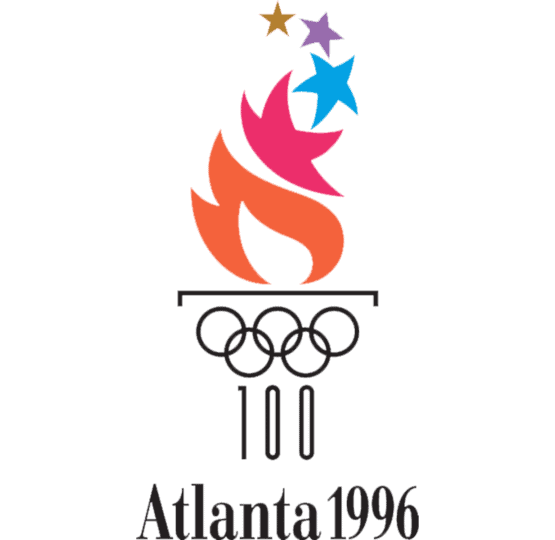
1996 Summer Olympics: Atlanta, GA
Following a decline in public appearances, the Champ delights millions during this Games' unforgettable moments.
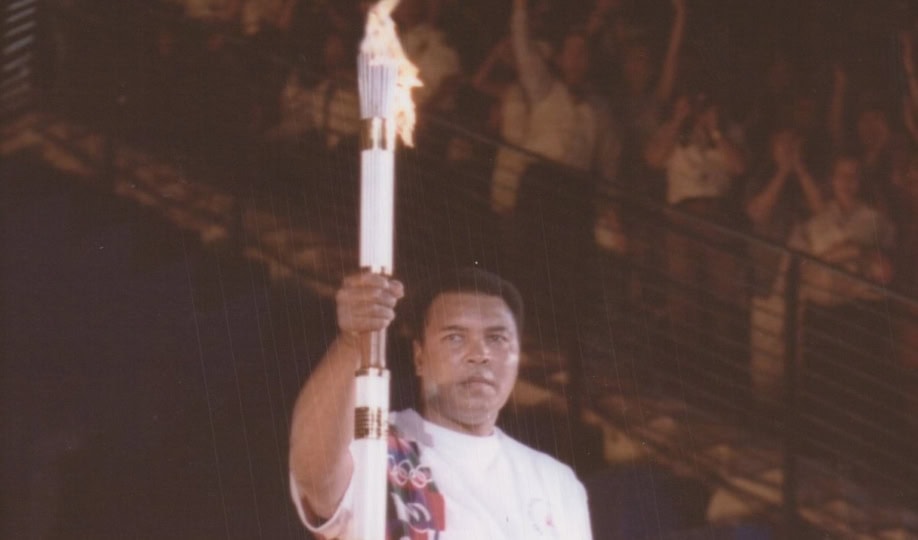
A Surprise Showing
Muhammad Ali is one of the most recognizable people in modern history, an accolade he achieved by being ever-present in international media, both for his excellence in boxing and his humanitarian efforts. However, after being diagnosed with Parkinson’s Disease in fall of 1984, Ali’s public appearances were few and far between as his health declined. This made his next Olympic appearance even more inspiring.
Thirty-six years after his first foray into the Olympics, and 100 years after the inaugural games in Athens, Muhammad Ali would again step onto the world stage in an iconic moment that, not for the first time, shook up the world as he lit the Olympic cauldron. Unbeknownst to most everyone in Centennial Olympic Stadium, Ali was waiting out of sight as gold-medalist swimmer Janet Evans ran towards the cauldron with the flame. When Evans reached the top of the stairs, she raised her torch and Ali stepped out of the shadows to light his own torch. The crowd erupted in cheers, chanting, “Ali! Ali! Ali!” This outpour of love and adoration only reaffirmed his status as the People’s Champion.
Watch The Torch Lighting
Muhammad Ali surprised more than 80,000 people in attendance for the Opening Ceremony, appearing out of the shadows to light the torch.
Watch The Torch Lighting
Muhammad Ali surprised more than 80,000 people in attendance for the Opening Ceremony, appearing out of the shadows to light the torch.
New Gold
The Opening Ceremony wasn’t the only appearance Muhammad Ali made at the 1996 Summer Olympic Games. During the halftime of the men’s basketball final between the United States and Yugoslavia, Ali was gifted a gold medal by International Olympic Committee President Juan Antonio Samaranch.
This gold medal serves as a replacement for the one Ali earned in the 1960 Olympic Games. While it is unknown what happened to that medal, Ali told stories about throwing the Gold Medal from the Jefferson County Bridge in Louisville after facing racial discrimination at a restaurant shortly after returning home from Rome.
Ali received the medal and posed with members of the Team USA basketball team during the halftime ceremony. Team USA went on to win the Gold in their own competition, with a final score of 95-69. Ali’s Gold medal can now be seen within the Muhammad Ali Center Museum.
Watch Gold Medal Ceremony
Ali received the replacement gold medal on August 4, 1996.
Watch Gold Medal Ceremony
Ali received the replacement gold medal on August 4, 1996.
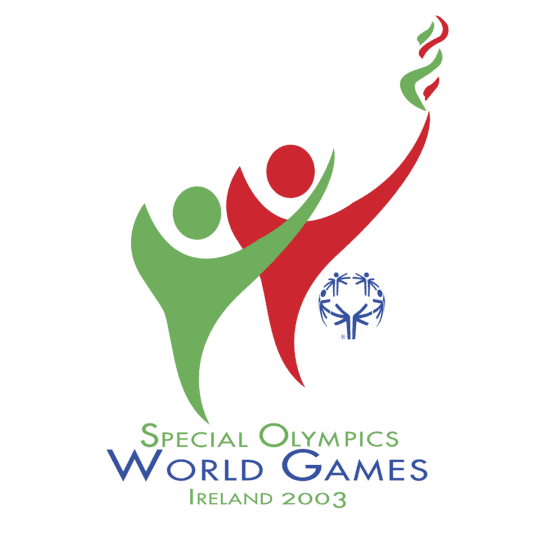
2003 Special Olympics: Ireland
Muhammad Ali was brought in as an icon to celebrate the Special Olympics' first appearance outside the US.
Bringing the World Together
Thirty years after Muhammad Ali fought Al Lewis at Croke Park in Dublin, Ireland, he returned to attend the opening ceremony of the Special Olympic Games in June 2003. Accompanied by his wife, Lonnie Ali, his best friend, Howard Bingham, and his manager, Harlan Werner, Ali’s presence once again illustrated his impact on the world.
The 2003 Special Olympic Games were the first held outside of the United States. To commemorate this feat, the goal of organizers was to invite, “…the greatest and most iconic figures,” to draw the eyes of the world to Ireland. Ali was joined by other world leaders and celebrities like Jon Bon Jovi, Arnold Schwarzenegger, and Nelson Mandela. While Mandela officially opened the games, organizers said, “[Ali] made the Special Olympics a success.”
In an Esquire Magazine article, Cal Fussman remembered energy bursting from the crowd as Ali entered the stadium and lifted his hand, stating that “There are very few people in the history of the planet who could make everybody in the world stop for a moment, forget their differences, smile, and applaud in unison.” Ali was one of those rare individuals.
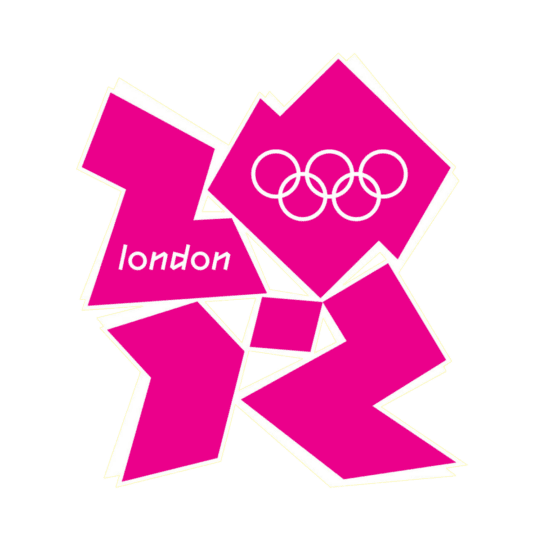
2012 Summer Olympics: London, England
Ali's final appearance at the Olympics brought together individuals who embodied Olympic values.
Ali’s Final Olympic Appearance
Fifty-two years after his triumph at the 1960 Olympic Games in Rome, Muhammad Ali made his final appearance on the Olympic stage. Along with eight other special guests chosen for embodying Olympic values, he escorted the Olympic flag into the stadium during the 2012 opening ceremony. This moment, less than four years before his passing, marked the end of Ali’s Olympic journey.
Watch More
Muhammad Ali and Lonnie Ali made an additional appearance for the 2012 Summer Games in London.
Watch More
Muhammad Ali and Lonnie Ali made an additional appearance for the 2012 Summer Games in London.
